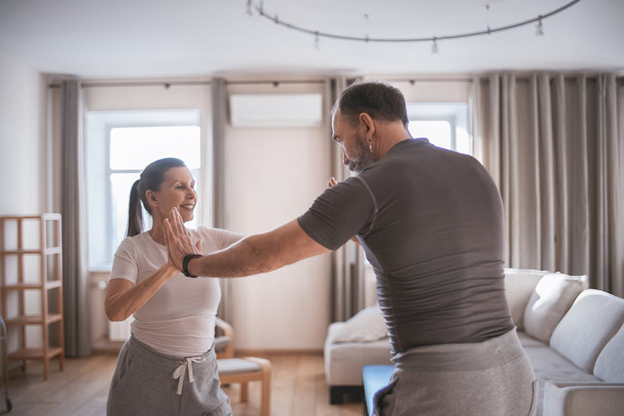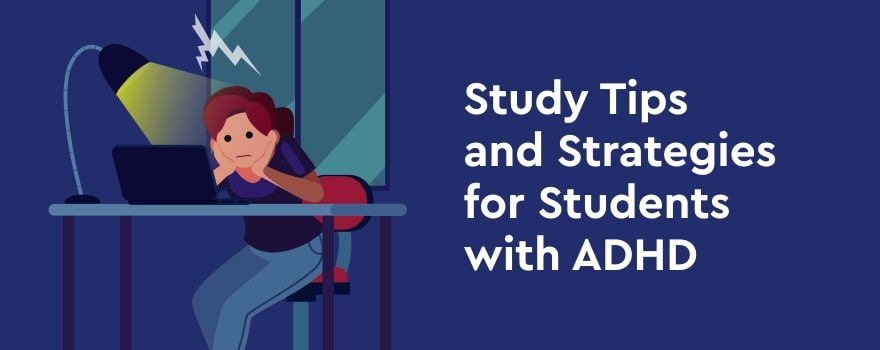5 Signs Your Coronavirus Anxiety Has Turned Serious, Threatening Your Mental Health, and What To Do About It
CNN Health: “5 Signs Your Coronavirus Anxiety Has Turned Serious, Threatening Your Mental Health, and What to Do About It”
Here is an excellent CNN Health article which I’m reprinting, because it deals very thoroughly with the potential impact of the Coronavirus pandemic on our mental health. The writer discusses several tools we can all use to offset some of the negative effects of living in lockdown, “hiding from death,” as I think of it. CNN Health: by Sandee LaMotte Enforced lockdowns. Isolation from friends and loved ones. Loss of job, income, economic stability. Grief and loss on so many levels — from missing milestones such as birthdays and graduations to severe illness and death. Difficult times made worse by the fear of an invisible, deadly enemy who strikes via the very air we breathe. Coronavirus symptoms: 10 key indicators and what to do Such is the anxiety-ridden reality of living in the age of coronavirus for many people around the world. While some of us may be coping well right now, experts worry our emotional resilience will begin to fray as the threat of Covid-19 drags on. “We’re living constantly with a level of fear, a heightened state of arousal, much like Vietnam vets and Iraqi vets live with every day,” said trauma counselor Jane Webber, a professor of counselor education at Kean University in New Jersey. “And our sympathetic nervous system can only stay in that overwhelmed, almost frenetic state for so long before we crash,” said Webber, who counseled survivors and families during 9/11’s tragic aftermath. “I call it ‘chronic threat response’ — the continued state of being in a hyper-aroused survival mode,” said trauma psychologist Shauna Springer, who has spent a decade working with military veterans suffering from post-traumatic stress disorder, also known as PTSD. Why soap, sanitizer and warm water work against Covid-19 and other viruses “Chronic threat response is an escalation of many of the same symptoms associated with post-traumatic stress — sleep problems, floods of anxiety, irritability, difficulties concentrating and a hair-trigger startle response,” Springer said. What are some of the signs that our coping skills are becoming threadbare and our anxieties may turn dark and more dangerous?
1. Poor sleep
“When nightmares become a regular thing and our sleep quality is consistently bad, that is often the first sign that we may need to take action to improve our mental health,” said Springer, author of a new book called “Warrior: How to Support Those Who Protect Us.” Craving carbs and sleeping badly while social distancing? Here’s how to cope Poor sleep is a double-edged sword: Not only does anxiety create poor sleep, a lack of quality sleep can lead to anxiety, stress and depression, a sort of circular impact. The good news is that exercise and practicing good sleep hygiene can often help get us back on track.
2. A focus on bad news
As we shelter in place, a focus on watching alarming media reports on the growth of the virus and the devastation to the economy is another warning flag, according to Springer. “If we are spending our days soaking in this general anxiety and dread about what may happen, in a sort of foxhole waiting for bad news, that’s another sign that things are getting into a more clinical range,” she said. Smoking weed and coronavirus: Even occasional use raises risk of Covid-19 complications “And there’s the guilt of taking our feelings out on loved ones, which is likely to happen when you’re in close quarters with people for a long time and you haven’t adjusted to that.”
3. Loss of interest and pleasure
An even more serious sign, Springer said, is when we lose the taste for connection to others and stop reaching out to friends and family. “When we can’t find pleasure in anything and we begin to feel numb rather than connecting with others and doing things we value or want to do with our lives, that’s a sign that we may need help and support, she said.
4. Helplessness or crippling anxiety
If the current threat of Covid-19 has reawakened feelings of helplessness, such as in the face of violence at home, or from a loss of identity and purpose after being fired or furloughed from a job, that can also be a key sign of risk, experts said. “An overwhelming feeling of helplessness is what often leads to trauma symptoms,” Springer said. “Those of us who’ve been let go from a job can feel as if we’ve lost our identity, due to the absence of the roles and relationships that give our lives meaning, and therefore we feel helpless. We can be at risk.” Coronavirus: What to do if you or a loved one has symptoms Helplessness can turn to a dark and crippling anxiety, which is another sign that we need help. “Crippling anxiety is where you feel constantly flooded with feelings of panic and this nameless dread about what may unfold,” Springer said. “You don’t have a sense of a hopeful future. Anxiety creates tunnel vision and it really puts us in a state of fight or flight. “And when we are in that survival mode for a prolonged period of time, that’s when anxiety goes into a darker phase and it really warrants clinical support,” she said.
5. Thoughts of suicide
Being so hopeless and anxious that we begin to think of ending our life is, of course, a sign that immediate professional help is needed, experts said. “Military veterans say this is when ‘whispers of our demons’ begin to take over,” Springer said. “When we start to script out a story in our heads of how others won’t miss us or that we’re a burden to those that we love, that is a critical sign that we need to get help immediately.”
What to do to help yourself
Reach out and connect, just not physically. The first thing to do is stay socially connected with friends and loved ones even though you’re physically apart. Technology is a great way for many of us to do that, but some in the family, such as grandparents, may be as adept at using Facebook, Facetime and Zoom, for example. “Instead of just relying on social media, we can make a list of the 10 or 20 people that we care the most about and put them in our phone on a rotating basis,” Springer said. “We’re going to call one of those people every day.” You can’t hide your stress from your kids, study says Next, Springer suggested adding more people from our outer ring of friends and associates that we may not be as close to and put those people into that daily call rotation. That’s especially critical if you think those people may be especially isolated right now. “Reaching out and connecting with people, especially those who are especially isolated, and giving them space to talk about their experience and anxiety during this unprecedented time of anxiety and then sharing our own experience is how we will get through this,” she said. “When we connect, we survive.” Breathe deeply. In therapy sessions, Webber said, “the thing we teach most is deep breathing. It’s free, it doesn’t cost anything and it really works.” Here’s how to do it properly, she says: Breathe through the nose, hold it and then exhale very slowly out through your mouth like you’re breathing through a straw. “And when you breathe slowly out, you improve your whole picture of life and you reduce your nervousness,” Webber said. Practice gratitude. Science has shown that people who practice gratitude are happier and more optimistic — and you can easily teach yourself how to do it. “One thing I recommend to everyone in scary times is to write two or three things each day of what you’re grateful for. It shifts your view of the world,” Webber said. Five ways to improve your mental health in 2020 “I’m grateful for my daughter because she is home with me right now. I’m grateful for my son, the nurse. I’m grateful for my other son who has figured out every possible way of getting food online that there is in the entire county,” she added with a chuckle. Take control of your mental state. Fight back against anxiety turning darker, experts suggested, by taking control of how you think. “One of the ways to do that is to take out a sheet of paper, put a line down the middle and on one side write down the things we can’t control right now, and on the other write what we can control,” Springer said. “And then we form a plan of action that allows us to move on those things that we can control.’ This stops us from “soaking in that feeling of helplessness or if you will just be sitting in our foxhole and waiting for more bad news to come,” she said. “We’re actually moving on things that we want to be doing with our lives, even if there are some very challenging circumstances right now.” The meaning behind your strange coronavirus dreams For some people that may not feel possible, especially if they lost a job or were furloughed when the economy came to a screeching halt. “Losing a job is a seismic stressor, one of the most stressful things that can happen to you,” Springer said. “But you can sit and ponder on your negative situation or you can use the time to learn something new or deepen yourself or gain some skills.” She points to the many high quality, inexpensive or free training programs on the internet today that can add skills to your profession or even help you transition to something new. “So people can use this time to build skills and become smarter and stronger and more prepared for when the workforce really kicks back in and full force,” Springer said. Establish a schedule. Our days and nights are blending together, and many people find themselves working more hours, or if they can’t work, fretting about finances. One way to fight back to is establish a schedule that separates work or job search from family and play time, especially exercise, which is critical for boosting our mental mood. Meditation or mindfulness are also excellent options to schedule into our day, experts said. “We have to create routines in order to get through this absolutely surrealistic world right now,” Webber said. “Focus on the little things, such as making a lunch in a special way, knitting, crocheting, meditation, mindfulness, yoga or walking or running to do something physical to help us reach a more calm mental state.” Be careful with media, especially social media. Be sure to limit the amount of time you spend watching the news, especially if you feel it makes you anxious, experts said. That can also apply to social media, said Arthur Evans, the CEO of the American Psychological Association, in a recent interview for the Washington Journal section of CSPAN. “There is a lot of misinformation on social media,” Evans said. “When you couple that with a lot of contradictory information, it creates more anxiety for people.” For example, he said, social media is filled with conspiracy theories and other wrong information that “is contradicting what we are hearing from professionals who really know and understand these issues … so limiting the information to reliable sources, sources you can trust, goes a long way in helping manage that stress.” Crack a smile. It’s long been said that “laughter is the best medicine,” and that applies to the anxiety of our times, experts said. “Remember, you can’t be anxious and smile at the same time. That’s a physiological thing,” Webber said. So watch funny movies, listen to comedy routines, ask everyone you talk to on the phone to tell you a joke. Give back to them by doing the same. Stay optimistic. There are so many unknowns when it comes to this new disease that is terrorizing the world. Will it ease over the warmer summer months? Get better or worse as the world begins to open back up? Even worse, will it return with a vengeance in the fall and winter? Don’t let those unknowns shake you or take away your optimism, Webber said. “I consider optimism both healthy and an Achilles heel, because of course, being too optimistic might let you down,” she said. “But if I had the choice, optimism is always better than pessimism. And optimism is always better than realism. If we have hope that the best will come, we might be disappointed, but that hope, I always believe, will get to the person that you love.”








